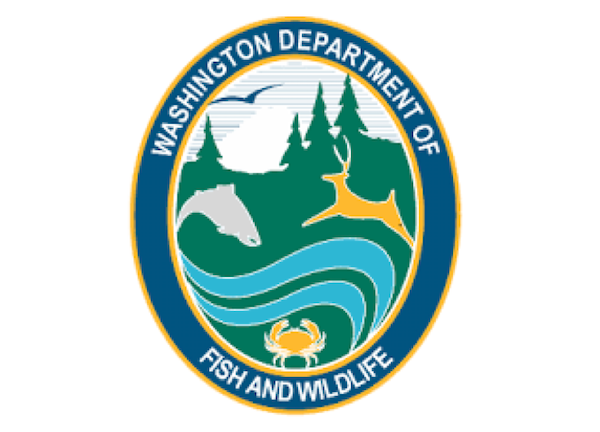Idaho Fish Report
WDFW announces 36 days of tentative coastal razor clam digging opportunities beginning Sept. 29

by WA Department of Fish & Wildlife Staff
9-15-2023
Website
OLYMPIA – Shellfish managers with the Washington Department of Fish and Wildlife (WDFW) today announced 36 days of tentative razor clam digs at coastal beaches from Sept. 29 through Dec. 29.
“We enter the 2023-24 season with a smaller coastal razor clam population than the past few years, but it still remains strong and healthy enough to provide ample digging opportunity this fall and early winter,” said Bryce Blumenthal, a WDFW coastal shellfish biologist.
Marine toxin levels have been elevated according to the Washington Department of Health (DOH) guidelines. WDFW is unsure if all beaches will open to start the season. DOH requires two test samples taken seven to 10 days apart, and domoic acid levels must fall under the guideline level before a beach can reopen for digging. Domoic acid, a natural toxin produced by certain types of marine algae, can be harmful or fatal if consumed in sufficient quantities. More information about domoic acid, as well as current levels at ocean beaches, can be found on WDFW's domoic acid webpage.
Final approval of marine toxin testing usually occurs about a week or less – sometimes two to three days – prior to the start of each digging series. It will be particularly important for harvesters to check the WDFW website before heading to the beach.
On all open beaches – Long Beach, Twin Harbors, Mocrocks, and Copalis – the daily limit is 15 clams per person. Each digger’s clams must be kept in a separate container, and all diggers must keep the first 15 clams they dig, regardless of size or condition.
“It's important that diggers keep the clams they dig to prevent wastage,” Blumenthal said. “It's not unusual to encounter some small clams, especially this early in the season.”
Kalaloch beach off the northern Olympic Peninsula coast won’t be open due to continuing issues with depressed populations of harvestable clams.
Most successful digging occurs between one and two hours before the listed time of low tide. Below are the tentative dates, along with low tides and beaches.
- Sept. 29, Friday; 7:18 p.m.; -0.4 feet; Long Beach, Twin Harbors, Mocrocks
- Sept. 30, Saturday; 8:04 p.m.; -0.9 feet; Long Beach, Twin Harbors, Copalis
- Oct. 1, Sunday, 8:49 p.m.; -1.0 feet; Long Beach, Twin Harbors, Mocrocks
- Oct. 2, Monday, 9:36 p.m.; -0.9 feet; Long Beach, Twin Harbors, Copalis
- Oct. 14, Saturday, 7:17 p.m.; 0.2 feet; Long Beach, Twin Harbors, Mocrocks
- Oct. 15, Sunday,7:52 p.m.; -0.1 feet; Long Beach, Twin Harbors, Copalis
- Oct. 16, Monday, 8:28 p.m.; -0.3 feet; Long Beach, Twin Harbors, Mocrocks
- Oct. 17, Tuesday, 9:06 p.m.; -0.4 feet; Long Beach, Twin Harbors, Copalis
- Oct. 18, Wednesday, 9:49 p.m.; -0.3 feet; Mocrocks
- Oct. 27, Friday, 6:18 p.m.; -0.4 feet; Long Beach, Twin Harbors, Mocrocks
- Oct. 28, Saturday, 7:03 p.m.; -1.0 feet; Long Beach, Twin Harbors, Copalis
- Oct. 29, Sunday, 7:46 p.m.; -1.3 feet; Long Beach, Twin Harbors, Mocrocks
- Oct. 30, Monday, 8:29 p.m.; -1.3 feet; Long Beach, Twin Harbors, Copalis
- Oct. 31, Tuesday, 9:12 p.m.; -1.0 feet; Mocrocks
- Nov. 12, Sunday, 5:53 p.m.; -0.3 feet; Mocrocks
- Nov. 13, Monday, 6:30 p.m.; -0.7 feet; Long Beach, Twin Harbors, Copalis
- Nov. 14, Tuesday, 7:09 p.m.; -0.9 feet; Long Beach, Twin Harbors, Mocrocks
- Nov. 15, Wednesday, 7:51 p.m.; -0.9 feet; Long Beach, Twin Harbors, Copalis
- Nov. 16, Thursday, 8:37 p.m.; -0.8 feet; Long Beach, Twin Harbors, Mocrocks
- Nov. 17, Friday, 9:27 p.m.; -0.5 feet; Copalis
- Nov. 18, Saturday, 10:22 p.m.; -0.1 feet; Mocrocks
- Nov. 24, Friday, 4:18 p.m.; 0.0 feet; Long Beach, Twin Harbors, Copalis
- Nov. 25, Saturday, 5:05 p.m.; -0.7 feet; Long Beach, Twin Harbors, Mocrocks
- Nov. 26, Sunday, 5:49 p.m.; -1.2 feet; Long Beach, Twin Harbors, Copalis
- Nov. 27, Monday, 6:31 p.m.; -1.3 feet; Long Beach, Twin Harbors, Mocrocks
- Nov. 28, Tuesday, 7:12 p.m.; -1.2 feet; Long Beach, Twin Harbors, Copalis
- Nov. 29, Wednesday, 7:52 p.m.; -0.8 feet; Mocrocks
- Dec. 13, Wednesday, 6:55 p.m.; -1.3 feet; Long Beach, Twin Harbors, Mocrocks
- Dec. 14, Thursday, 7:39 p.m.; -1.3 feet; Long Beach, Twin Harbors, Copalis
- Dec. 15, Friday, 8:25 p.m.; -1.2 feet; Long Beach, Twin Harbors, Mocrocks
- Dec. 16, Saturday, 9:12 p.m.; -0.8 feet; Long Beach, Twin Harbors, Copalis
- Dec. 17, Sunday, 10:01 p.m.; -0.3 feet; Long Beach, Twin Harbors, Mocrocks
- Dec. 26, Tuesday, 6:18 p.m.; -0.9 feet; Long Beach, Twin Harbors, Copalis
- Dec. 27, Wednesday, 6:57 p.m.; -0.8 feet; Long Beach, Twin Harbors, Mocrocks
- Dec. 28, Thursday, 7:35 p.m.; -0.6 feet; Long Beach, Twin Harbors, Copalis
- Dec. 29, Friday, 8:11 p.m.; -0.3 feet; Long Beach, Twin Harbors, Mocrocks
Additional information
No digging is allowed before noon during digs when low tide occurs in the afternoon or evening.
All diggers age 15 or older must have an applicable fishing license to harvest razor clams on any beach. Licenses can be purchased from WDFW’s licensing website, and from hundreds of license vendors around the state. WDFW recommends buying your license before visiting coastal beach communities.
The updated 2023-24 Razor Clam Management Plan is available on WDFW’s website. For more information, go to WDFW's razor clam webpage.
The Washington Department of Fish and Wildlife works to preserve, protect, and perpetuate fish, wildlife and ecosystems while providing sustainable fish and wildlife recreational and commercial opportunities.

